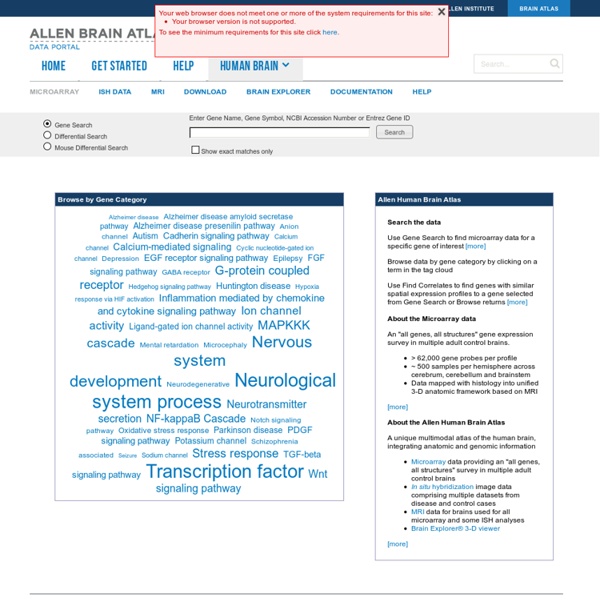Allen Brain Atlas: Human Brain

Brain Research through Advancing Innovative Neurotechnologies (BRAIN) Initiative - Research & Training
NIH Home > Research & Training What is the BRAIN Initiative? The Brain Research through Advancing Innovative Neurotechnologies (BRAIN) Initiative is part of a new Presidential focus aimed at revolutionizing our understanding of the human brain. A map of overall task-fMRI brain coverage from the seven tasks used in the Human Connectome Project. THE BRAIN INITIATIVE and BRAIN RESEARCH THROUGH ADVANCING INNOVATIVE NEUROTECHNOLOGIES are service marks of the U.S. Meeting Information May 29, 2013, San Francisco, CA Focus: Molecular approaches View the Agenda June 26, 2013, New York, NY Focus: Large-scale recording technologies View the Agenda July 29, 2013, Boston, MA Focus: Computation, theory, and big data View the Agenda August 29, 2013, Minneapolis, MN Focus: Human Neuroscience View the Agenda This page last reviewed on April 9, 2014
Human Connectome Project
Mis Recetas Anticáncer
Who's My Doctor? The Total Transparency Manifesto
Home - SolveBio
fundación contra la hipertensión pulmonar
Inicio :: Centro Huerta del Rey
Related:
Related:



